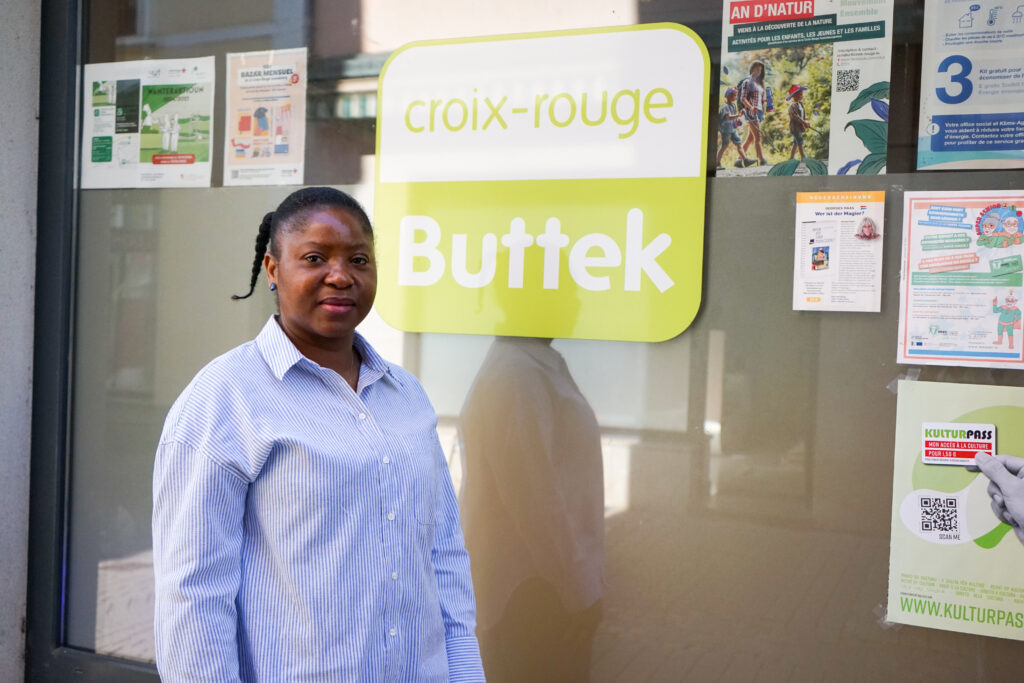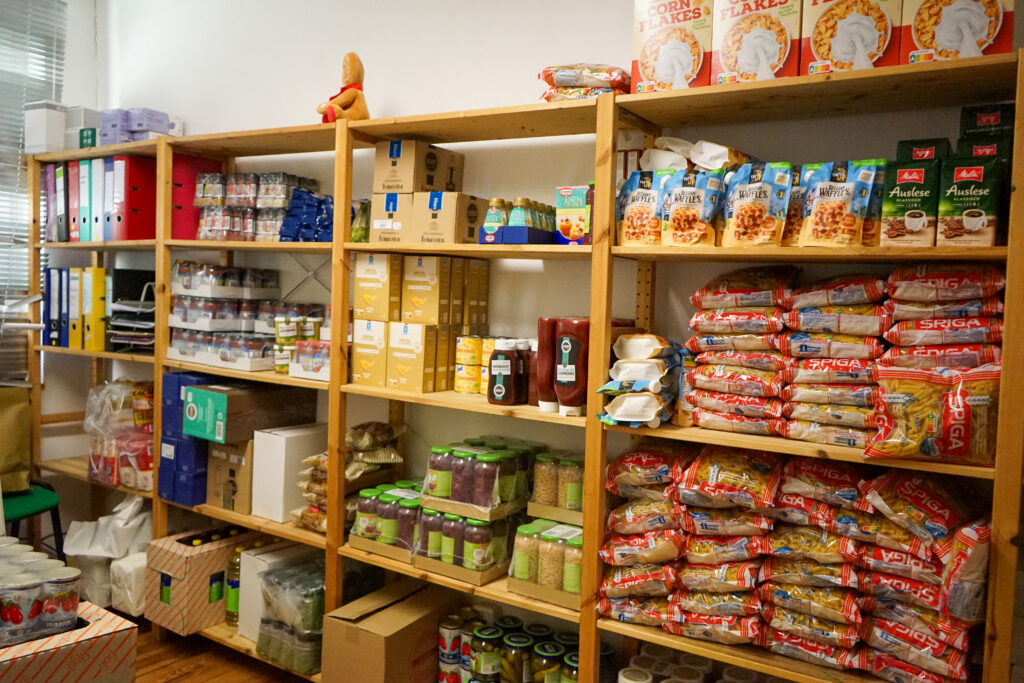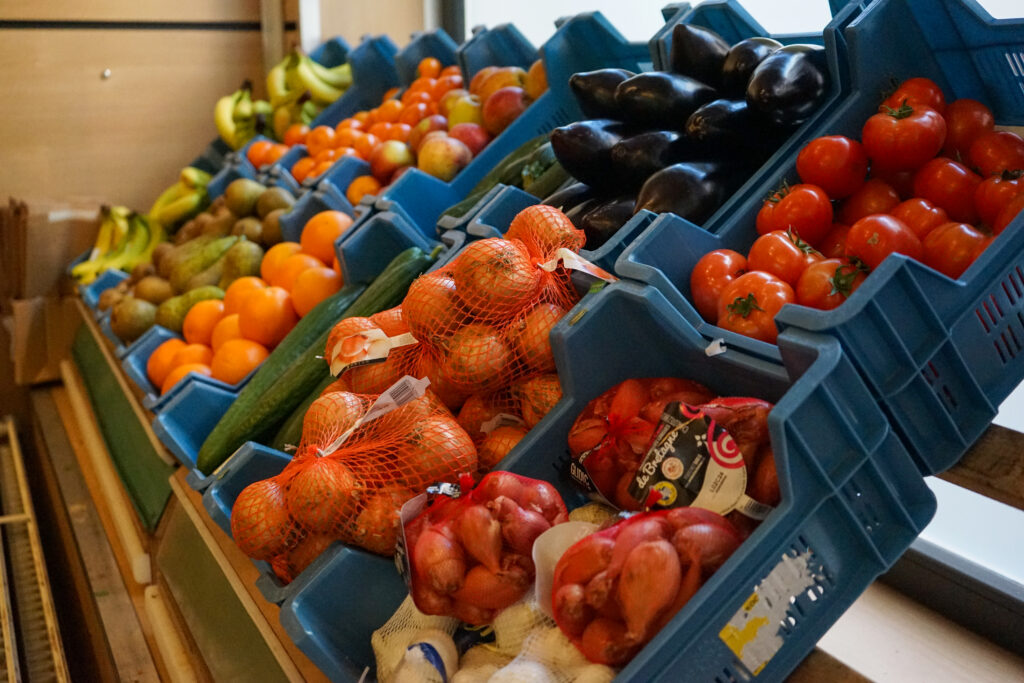30 April 2025

On International Workers’ Day, discover the inspiring journey of Hélène, manager of the Buttek in Grevenmacher.
“I consider myself lucky to work with this team,” says Hélène Assong, 49, manager of the Buttek in Grevenmacher.
A former public utility worker (TUC), Hélène was supported by the TACT service (Transition Activation Skills Work) of the Luxembourg Red Cross — a win-win outcome.

“We arrived in Luxembourg in 2015 with my husband, who also worked in banking as an executive. We applied for refugee status because our outspokenness put us at risk in our home country, Gabon.” When people began threatening their children, the couple decided to leave. “We told no one at work, we were afraid. We pretended to go on holiday to Luxembourg” she explains, with their two youngest children. What followed were exhausting months, moving from one shelter to another and dealing with the administrative process to bring their two eldest children to Luxembourg.
“Once our refugee status was granted, my husband took up small jobs — first as a storekeeper in a garage, then as a magazine distributor for a gym, for example.” Finding jobs in the banking sector was difficult as neither spoke English or German, but they didn’t give up. “My husband went back to university. I did an internship in a bank which went very well, but they couldn’t keep me due to limited space in the French-speaking team,” continues Hélène.

A mother of five who experienced a difficult childbirth and suffers from back problems, Hélène couldn’t work full-time. Her ADEM advisor transferred her case to ONIS, and her new advisor suggested the TUC programme — warning her the jobs might not align with her previous banking experience.

“I desperately wanted to work, so I took the opportunity to be a general assistant at the Buttek in Echternach as an adventure,” she smiles. “I can’t stand staying idle at home.”
Over time, this active job even helped her back pain fade. Energetic as ever, Hélène threw herself into receiving deliveries and organising activities for beneficiaries.
Step by step, she secured more contracts and eventually, a permanent position as manager of the Buttek in Grevenmacher four years ago — a role that now allows her to apply her management skills. “When my supervisor suggested I apply, I hesitated. I wasn’t sure I met all the criteria,” she recalls. But with encouragement, she applied — and got the job. “I feel great in the Department of Material and Food Aid. It’s like a second family. Whenever I need support, someone always picks up the phone — it’s almost like my supervisors are there with me in the Buttek,” she explains.
“Every day is different. I meet many people — beneficiaries we try to help, dedicated volunteers, and partners. It’s very stimulating.”
she concludes.